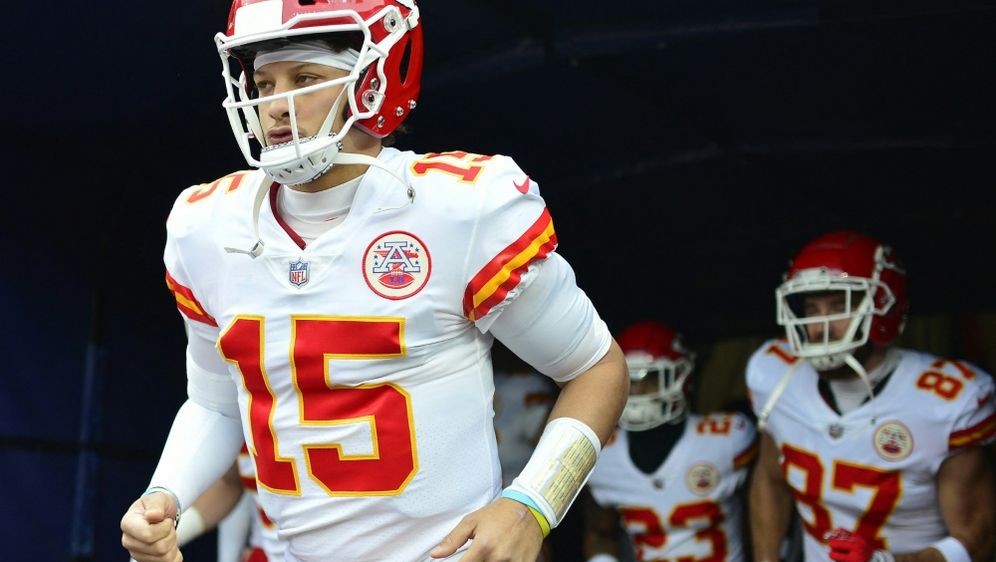The New England Patriots lost 29:35 after overtime against the Dallas Cowboys. Once again, Head Coach Bill Belichick’s extremely conservative playcalling was striking.
Munich/New England – 29:35 after overtime against the Dallas Cowboys. After this disappointing result, the New England Patriots suffered their fourth defeat in the fourth home game of the current season on the sixth day of play.
Such a number of winless games in Foxborough is uncharacteristic for head coach Bill Belichick’s men. Nevertheless, like another conspicuous feature this season: the conservative playcalling.
Game against Cowboys as a symbol
Against the Cowboys, the lack of risk-taking was evident in several game situations. After a fumble by Cowboys quarterback Dak Prescott late in the second quarter, the Patriots got the ball back at their own 20-yard line.
At that point, the Pats led 14-10 with 90 seconds and a timeout remaining before halftime and 50 yards to at least get within field-goal range.
Instead of getting more points on the scoreboard with aggressive plays, the Patriots opted for an inside handoff on first down followed by two kneeldowns by Mac Jones and just let the clock run out.
“We were supposed to get the ball in the second half,” Belichick justified himself on Monday, stressing they wanted to “get ready for the second half at the break.”
And it wasn’t to be the only explanation needed.
Playcalling in overtime costs win
The Patriots, who took the opening kickoff of overtime, saw their drive stall after an incomplete pass on 3rd-and-3 at their own 46-yard line.
Despite facing one of the league’s most potent offenses, which in this case would have needed only a field goal to win, Belichick opted to punt rather than be aggressive and leave his offense on the field.
A controversial decision. Especially considering that Dallas still ended up crossing the field and winning the game with a 35-yard touchdown pass to wide receiver CeeDee Lamb.
Belichick said he “didn’t really” consider giving Mac Jones and the offense a chance to gain three yards, citing field position as the main reason for the decision:
“I mean with Zuerlein (the Cowboys’ kicker, ed.) and his field-goal range, they would only have a pretty short field to cover. That’s where you can get a win with a first down.”
Not trusting his rookie quarterback and the offseason’s revamped offense on 4th down didn’t stand out the first time this season.
Patriots risk averse on 4th downs
New England has had 41 fourth downs so far this season, accounting for 23 punts and 15 field goal attempts. Ten of the fourth down attempts were from less than 4 yards to first down.
According to ESPN, only the Seattle Seahawks, with two fourth-down conversions, took fewer risks on fourth down than the Patriots, with three.
Notably, all three of those attempts came in the final two minutes of a 13-28 loss to the New Orleans Saints in Week 3. That means Belichick has yet to have a fourth try scored in the normal course of a game or in game-deciding situations in 2021.
With this conservative decision-making mindset, Belichick is currently swimming against the prevailing attitude league-wide on the coaching bench.
NFL coaches more willing to take risks than ever before
In the NFL, coaches’ willingness to gamble on fourth down tries has been on the rise over the years. In each of the past two seasons alone, for example, significant records were set. In 2019, according to the Boston Globe, there were a record 595 fourth-down attempts (2018: 539). In 2020, the top figure was raised significantly again with 658 attempts.
In the current season, with seventeen games in the regular season for the first time, the record of 700 4th downs played could also fall.
The Cleveland Browns are currently top of the league and have already scored 15 fourth downs, while the league average is eight.
With an average success rate of 50 percent (128 of 256) this season, perhaps the Patriots should also take more risks in the future.






Comments
No Comments